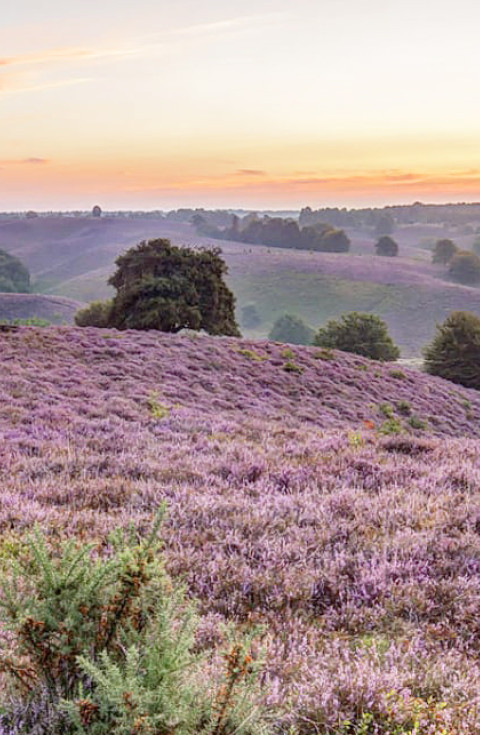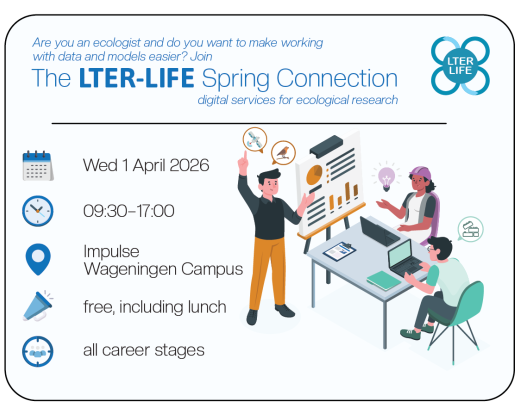LTER-LIFE

LTER-LIFE is a scientific infrastructure aimed at supporting shared and integrated ecological research – towards the building of digital twins of ecosystems.
LTER-LIFE, the SPRING CONNECTION 2026
We would like to invite you to LTER-LIFE's semi-annual meeting, Wednesday 1 April 2026 in Wageningen.
During this meeting we want to reach out to ecologists that would use our digital services to deeper discuss their needs and requirements. For this, we warmly welcome posters on ecological research or specific applications.

We do this in three ways:
- by bringing together geographically focused research communities; connecting people that do research on different aspects of the same ecosystem,
- by creating a portal to find (legacy) data, models, and tools relevant for these regional research communities; helping researchers to share and reuse, and
- by setting up a virtual research environment where these data, models and tools can be re-used and connected.
In the virtual research environment, virtual laboratories will support reuse and co-development. By integrating the link to datasources and streams with state of the art modelling in a modular way, these LTER-LIFE virtual labs will allow for the building of digital twins of ecosystems. These digital twins can be used in support of scientific research and monitoring and will allow for scenario analysis.
LTER-LIFE will initially focus on 2 of the most extensive and best-studied ecosystems in the Netherlands representing aquatic and terrestrial ecosystems: the Wadden Sea and the Veluwe. The infrastructure was founded in August 2023 and has obtained a 10-year grant from NWO to develop and implement the infrastructure.
Try out and beta-test
Check out the LTER-LIFE services-under-development through LTER-LIFE Experience
Project description
Read more detailed information about the project.
Newsletter
Sign up for the LTER-LIFE newsletter and read our latest newsletter.
Follow our LinkedIn page to stay up to date with the latest news